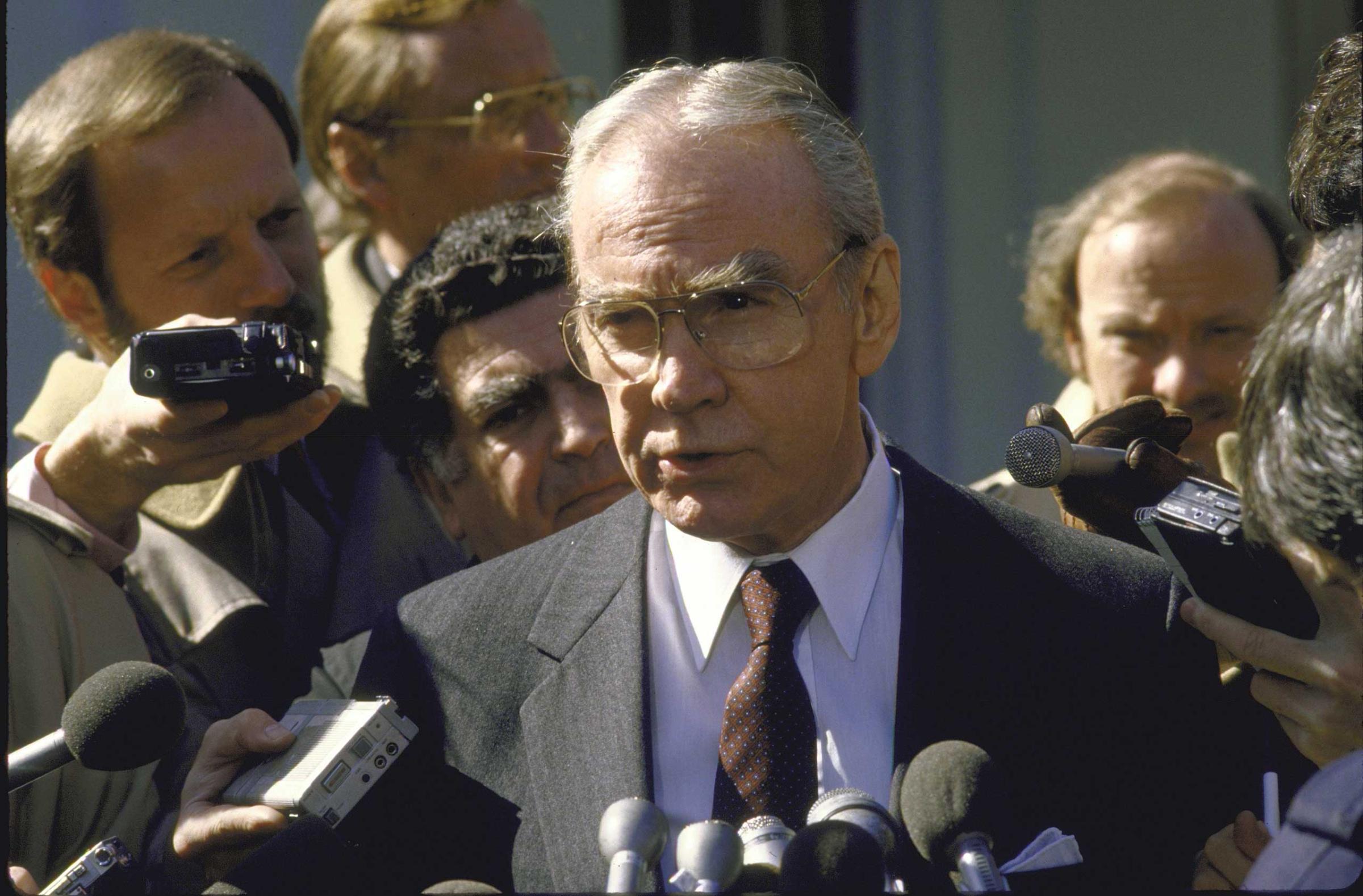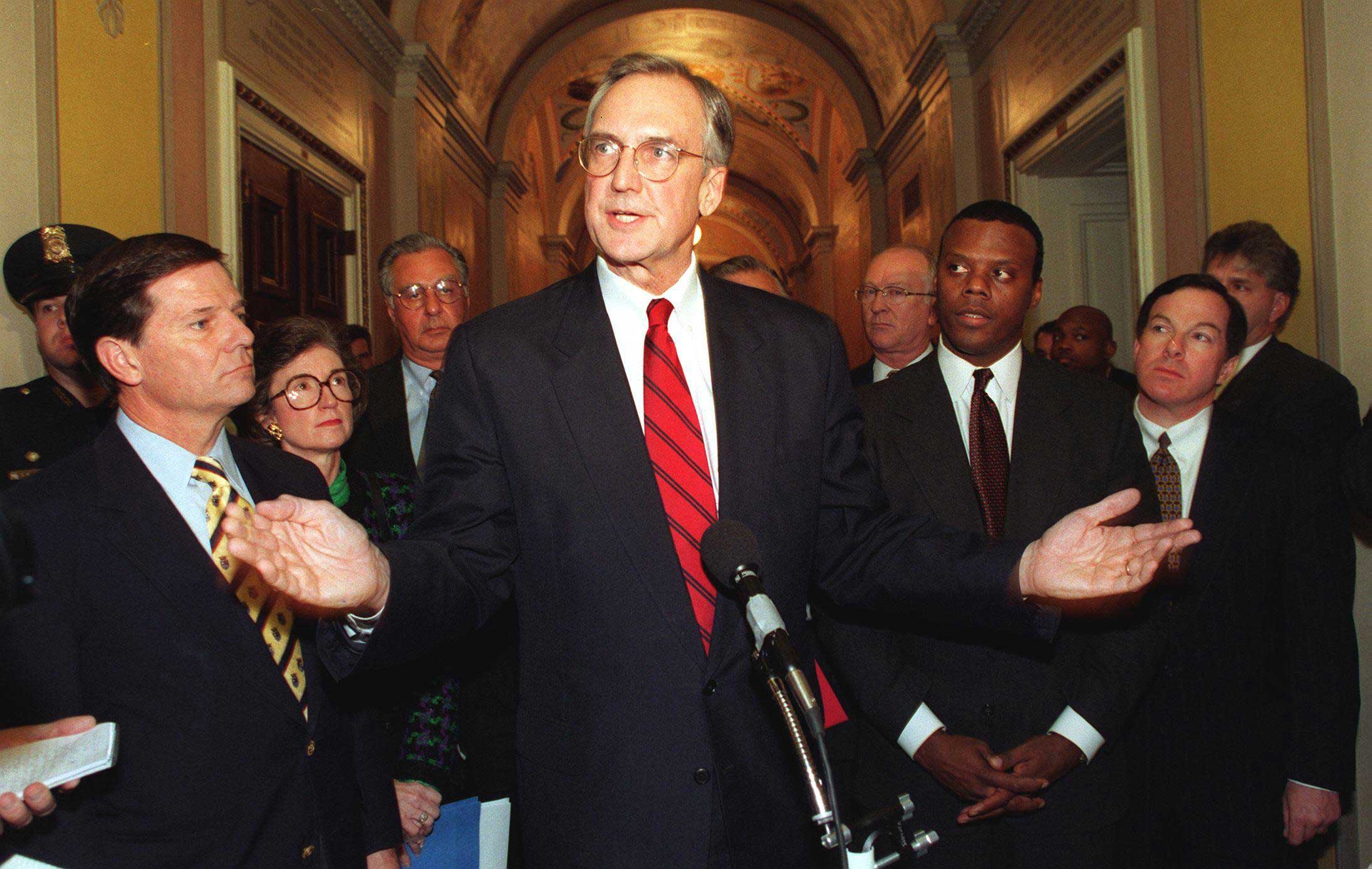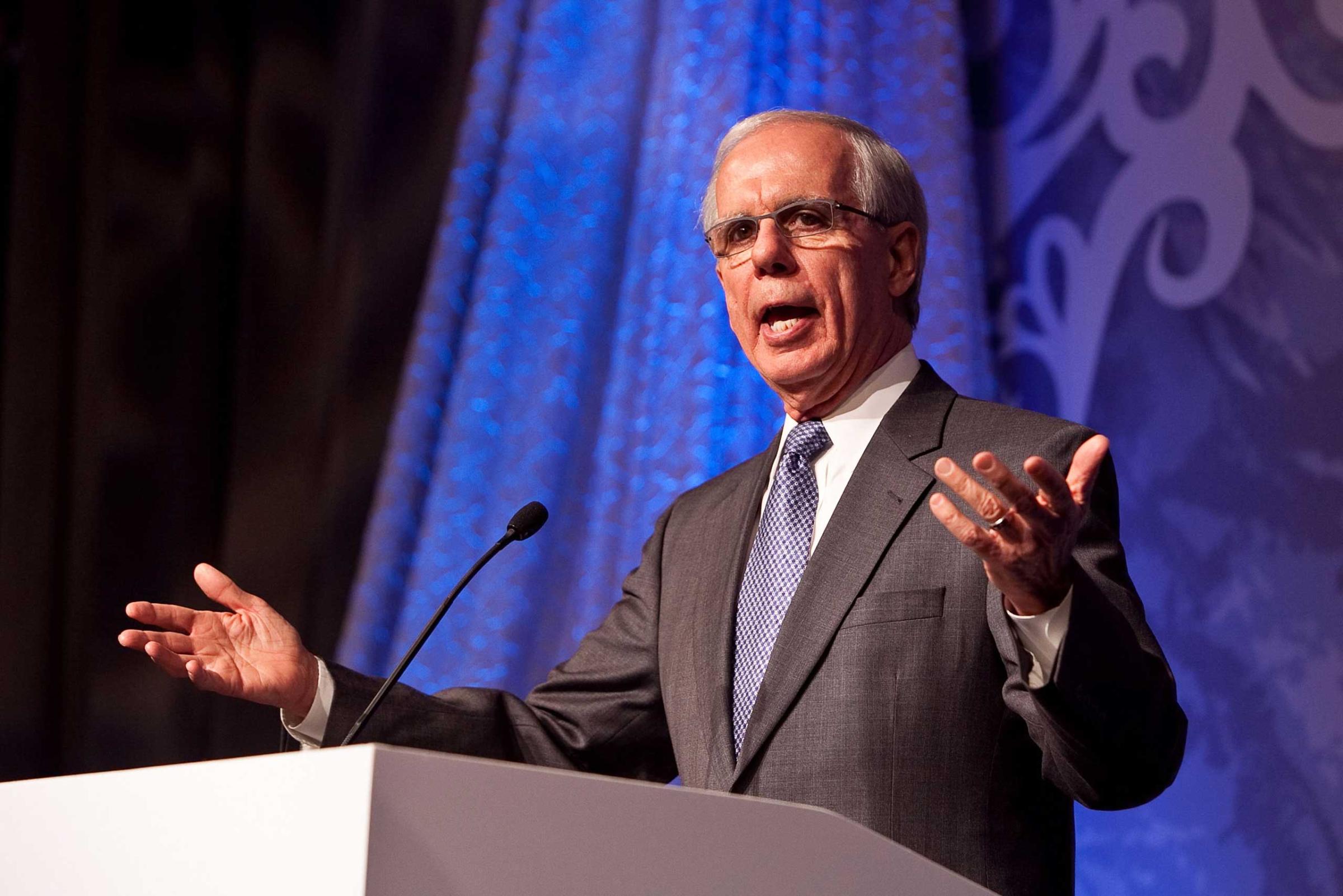The announcement that federal prosecutors had charged former House Speaker Dennis Hastert with lying to the Federal Bureau of Investigations about a series of bank transactions shook Washington on Thursday.
Though the Illinois Republican isn’t exactly a stranger to scandal—he was voted Speaker of the House following a scandal surrounding Newt Gingrich’s would-be successor—the announcement and the mystery surrounding it have spurred myriad questions about the Speaker’s future, and most importantly, his past.
Below, we attempt to address the most pressing questions that have been raised amid Hastert’s indictment.
Who is Dennis Hastert?
Dennis Hastert is a former Republican Congressman from Illinois and the longest serving Republican Speaker of the House of Representatives. Hastert was born in Aurora, Ill. and attended Wheaton College and Northern Illinois University. Before heading to Washington, Hastert worked at Yorkville High School in Yorkville, Ill., a small city in Northern Illinois about an hour outside of Chicago. At the high school, Hastert taught history and coached the high school wrestling team. He worked there from 1965 until 1981. In the early 1980s, he launched his political career, first serving in the Illinois state House of Representatives and later replacing Republican Rep. John Grotberg in Washington. Hastert rose to prominence on Capitol Hill and replaced Speaker Newt Gingrich in 1999. TIME magazine called him at the time, “The Speaker Who Never Was.” Hastert is often credited for establishing a rule in the House that limits the minority party’s power by only bringing bills to vote if the majority of the majority party doesn’t support it.
What has he been up to since?
Hastert stepped down as Speaker of the House after the 2006 election and in the wake of a lurid scandal surrounding Florida Rep. Mark Foley. Foley was found to have sent sexually suggestive messages to Congressional aides. Hastert was criticized for improperly handling Foley’s actions. Hastert had served on the Advisory of the J. Dennis Hastert Center for Economics, Government and Public Policy at Wheaton College, which was launched in 2007 after Hastert donated his congressional papers to the school. On Friday, the school announced Hastert had resigned from the Board of Directors. Hastert had also joined the Washington lobbying firm Dickstein Shapiro after leaving the House. The firm announced on Thursday the former Congressman had resigned in the wake of the indictment.
What is he accused of doing?
According to the indictment, Hastert is accused of lying to the FBI. Between 2010 and 2012, Hastert allegedly made 15 $50,000 withdrawals from his accounts and various banks and gave the money to an unidentified person, referred to as “Individual A.” The reason Hastert made the payments, according to the indictment, was “to compensate Individual A to remain secret so as to cover up his [Hastert’s] past misconduct.” The withdrawals caught the eye of the banks, which are required by law to report any transaction or series of transactions over $10,000. Hastert reportedly withdrew over $1.7 million dollars over four and a half years, about half of the $3.5 million he was supposedly giving to “Individual A” as a part of their agreement, according to the indictment.
Bank officials questioned Hastert, but after questioning the congressman started withdrawing cash in increments of $10,000 or less. That raised another red flag for federal authorities who started investigating the withdrawals in 2013. A year later, the FBI asked Hastert directly about the transactions and whether he was using the money to “cover up past misconduct” or if he was storing the cash. Hastert reportedly told agents, “Yeah…I kept the cash. That’s what I’m doing.”
Who is “Individual A”?
The indictment does not name “Individual A,” but it does provide some vague details about the person’s connection to Hastert. Individual A has known Hastert for all of his or her life and was born and raised in Yorkville, Ill.—the town where Hastert worked as a teacher and coach between 1965 and 1981. Individual A made contact with Hastert in 2010 a number of times. At the meetings, they are alleged to have discussed the undefined “misconduct” by Hastert. After the 2010 meetings, Hastert began withdrawing and delivering the cash.
What is the misconduct?
This part is unclear. The misconduct is repeatedly referred to as having occurred “against Individual A.” But the indictment does not specify what misconduct Hastert is accused of conducting. The indictment links Hastert and Individual A through the town of Yorkville—where the individual resides and where Hastert was once a teacher. The Los Angeles Times, citing two anonymous sources, reported on Friday afternoon that the misconduct was sexual in nature. Hastert’s lobbying firm declined to comment, while his attorney could not be reached by the newspaper.
Did anyone know?
The Yorkville Community Unit School District reportedly said they had “no knowledge of Mr. Hastert’s alleged misconduct, nor has any individual contacted the District to report any such misconduct.” In an interview with CNN, 2016 Presidential hopeful Rick Santorum, a former Congressman and Senator, said the whole ordeal seems “very much out of character” for Hastert. Reporters have unearthed a C-SPAN call during Hastert’s 2014 appearance on “Washington Journal” that could offer clues. In that call, a man identifying himself as “Bruce” calls into the program to speak with Hastert. “Hello Denny,” the caller says. “Remember me from Yorkville?” The caller than laughs and is disconnected.
What happens next?
According to the Wall Street Journal, a judge has not been assigned to the case and there is no date set for Hastert to appear in court. The Associated Press reports each count of the two-count indictment carries a maximum of 5 years in prison and a $250,000 fine.
Photos: 6 Congressional Leaders Who Resigned Over Scandals






More Must-Reads from TIME
- Donald Trump Is TIME's 2024 Person of the Year
- Why We Chose Trump as Person of the Year
- Is Intermittent Fasting Good or Bad for You?
- The 100 Must-Read Books of 2024
- The 20 Best Christmas TV Episodes
- Column: If Optimism Feels Ridiculous Now, Try Hope
- The Future of Climate Action Is Trade Policy
- Merle Bombardieri Is Helping People Make the Baby Decision
Contact us at letters@time.com